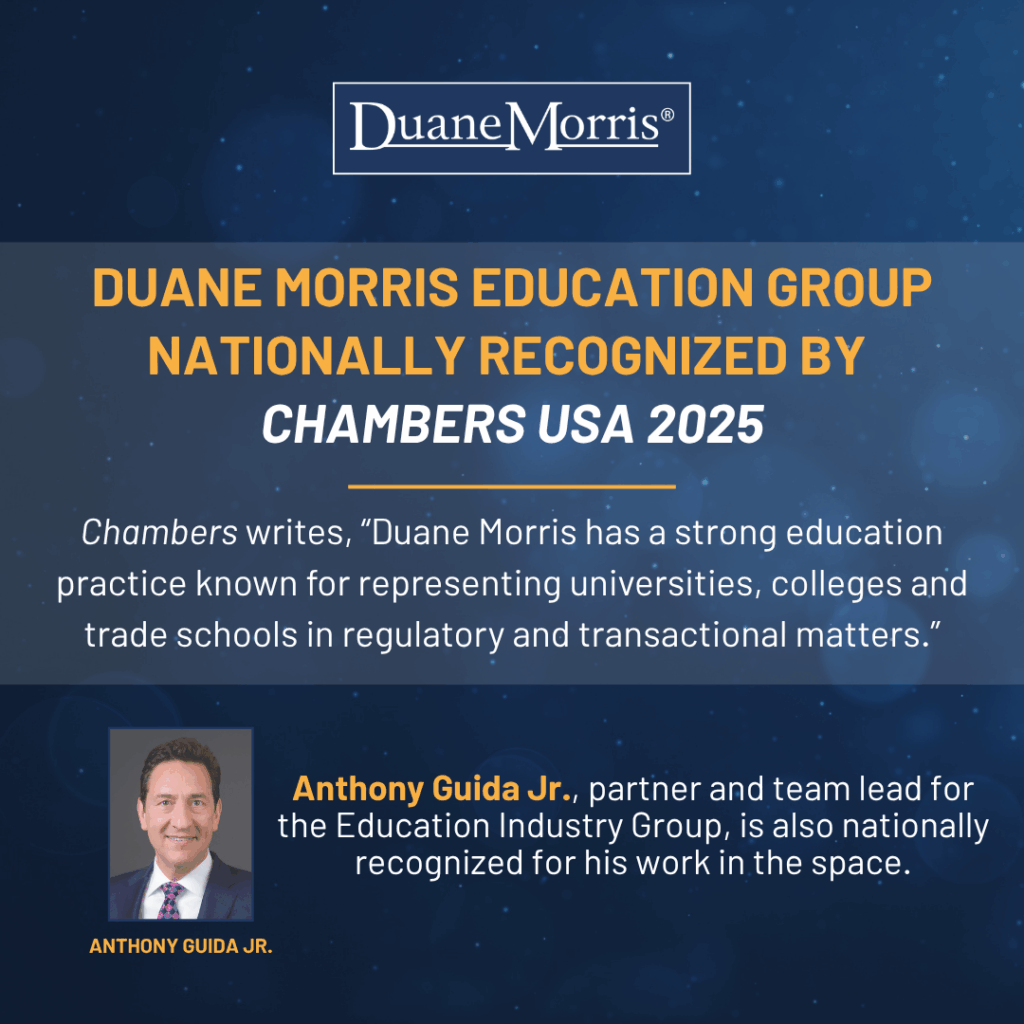By Katherine Brodie, Daniel Walworth and Matthew Steinway
On November 26, 2025, the U.S. Department of Education released an electronic announcement that describes planned enhancements to the electronic application for approval to participate in the Federal Student Financial Assistance Programs (E-App) on December 7, 2025. The E-App is part of the Department’s Federal Student Aid Partner Connect platform utilized by institutions participating in Title IV, Higher Education Act, programs to update or report eligibility information.
In addition to general improvements to the user experience throughout the E-App, the Department noted two significant platform changes that will require attention from institutions of higher education. The Department stated that it will provide guidance in early December to help its users better understand the changes.


